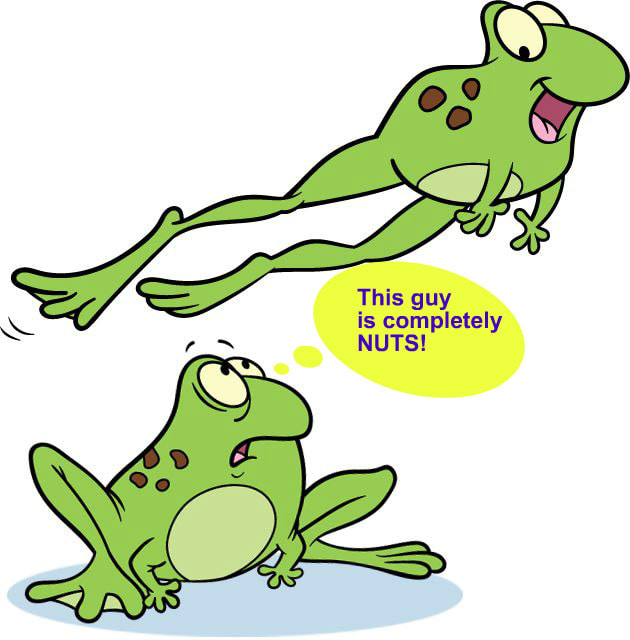According to Fritz Heider, a noted psychologist and author of the 1950s, behavior is a product of capacity and motivation. Capacity refers to whether a human is can enact a particular behavior—that is, whether his innate characteristics and his present environment make that behavior possible. Motivation refers to human intention as well as how much effort they apply. Heider believed that both capacity and motivation are necessary for a particular behavior to occur. Let's say you want to run a marathon. Your ability to do this will depend on your physical fitness and the weather that day as well as your desire to push through the race (your motivation).
Another theory on behavior is called correspondent inference theory. "This theory suggests that if someone behaves in a socially desirable way, humans do not tend to infer much about them as a person." For example, when you asked to borrow a pen and the person complies and gives you a pen, you aren't likely to infer much about them or their character. it's taken for granted that they'll let you use their pen. You'd do the same thing, right? "However, if your friend refuses to allow you to borrow a pencil, you are likely to infer something about their innate characteristics due to this socially undesirable response." According to this theory, humans do not conclude much about a person's behavior if they are acting in a particular role. case in point, a salesperson is friendly, outgoing, and helpful. You don't tend to think much about that behavior because it is expected of someone working in that capacity.
"On the other hand, if an individual displays behavior that is atypical in a given social situation, humans tend to be more likely to attribute their behavior to their innate disposition. For example, if you see someone behaving in a quiet, reserved manner at a loud and boisterous party, you’re more likely to conclude that this person is introverted."
Yet another method of determining behavior is called Kelley's covariation model. According to psychologist Harold Kelly, "humans use three types of information when they’re deciding whether someone’s behavior was internally or externally motivated."
1. Consensus - Whether others would act similarly in a given situation; the generally-accepted way to behave in that situation
2. Distinctiveness - Whether the person acts similarly across other situations. If a person only acts a certain way in one situation, the behavior can probably be attributed to the situation rather than the person.
3. Consistency - Whether someone acts the same way in a given situation each time it occurs. If someone’s behavior in a given situation is inconsistent from one time to the next, their behavior becomes more difficult to attribute.
"When there are high levels of consensus, distinctiveness, and consistency, humans tend to attribute the behavior to the situation." But when there are low levels of consensus and distinctiveness, but high consistency, humans were likely to decide the behavior is due to something about the person."
And, lastly, we have Weiner's three-dimensional model. "Bernard Weiner’s model suggests that people examine three dimensions when attempting to understand the causes of behavior: locus, stability, and controllability.
1, Locus refers to whether the behavior was caused by internal or external factors.
2. Stability refers to whether the behavior will happen again in the future.
3. Controllability refers to whether someone is able to change the outcome of an event by expending more effort.
According to Weiner, the attributions people make affect their emotions. People are likely to feel pride if they believe they succeeded because of an internal characteristic such as innate talent, rather than an external factor such as luck. Interestingly enough, research on a similar theory, explanatory style, has found that an individual's explanatory style is linked to their health and levels of stress.
As I'm sure you've figured out from your own personal experience, you're not always accurate when you try to guess why someone is acting a certain way. Psychologists have identified two key errors that humans commonly make when attempting to attribute behavior.
1. Fundamental Attribution Error: This "refers to the tendency to over-emphasize the role of personality traits in shaping behaviors. For example, if someone is rude to you, you may assume that they’re generally a rude person, rather than assuming that they were under stress that day." Humans are quick to judge...but so are frogs!
2. Self-serving Bias: This "refers to the tendency to give ourselves credit (i.e. make an internal attribution when things go well, but blame the situation or bad luck (i.e. make an external attribution) when things go poorly. According to recent research, people who are experiencing depression may not show the self-serving bias, and may even experience a reverse bias."
Have you spotted how you pre-judge someone's behavior? I sure have and it has given me pause for thought. Judging others never serves anyone well. And now that we know a little more about our individual thought processes, we can actively work to reverse...or at the least...slow down the way we view the actions of others. As we judge others, so are they judging us.
Please stop back by tomorrow for a look at a few of the longest-living creatures on earth. Who they are might surprise you! Until then,
PEACE.

 RSS Feed
RSS Feed